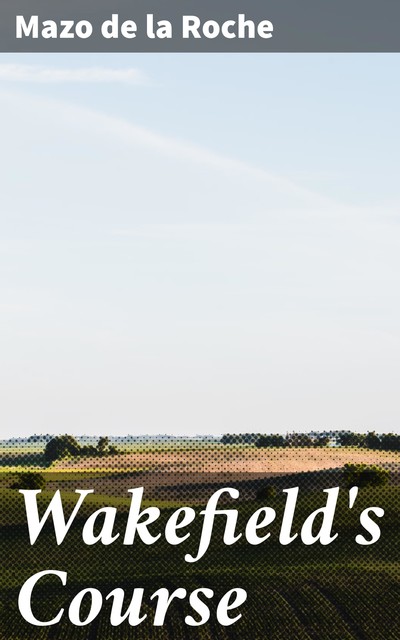In “Wakefield's Course,” Mazo de la Roche crafts a nuanced narrative that intertwines themes of independence, identity, and the complexities of human relationships. Set against the backdrop of early 20th-century Canada, the novel employs a sophisticated literary style, characterized by evocative prose and a keen psychological insight into its characters. De la Roche deftly explores the inner workings of human emotion and societal expectations, highlighting the struggles of her protagonist in navigating a path towards self-fulfillment amidst familial pressures and societal norms. Mazo de la Roche, famed for her innovative storytelling and vivid characterizations, drew from her own experiences in Ontario'Äôs rural landscapes and a rich familial heritage to inform her writing. As a pioneer female voice in Canadian literature, her works reflect her keen awareness of the socio-cultural milieu of her time. “Wakefield's Course” serves as an extension of her literary pursuits, ultimately delving into the dynamics of personal freedom and societal constraints that resonate with the author's own life philosophies and experiences. This profoundly engaging novel is highly recommended for readers interested in character-driven narratives that explore the subtleties of personal and social identity. De la Roche's exploration of the human experience will resonate with anyone seeking depth and empathy in literature, marking “Wakefield's Course” as an essential contribution to the Canadian literary canon.


